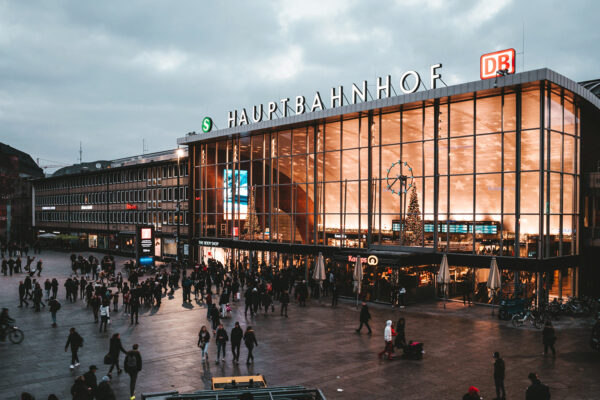
Germany is investing €86 billion over the next ten years in its aging rail network. The hope is to shift Germans toward less carbon-intensive forms of travel.
The federal government will cover the bulk of the cost, €62 billion. Deutsche Bahn, the state-owned railway company, will pay the remaining €24 billion. The money will be used to update tracks, stations, signal boxes and energy supply systems.
The government also intends to cut fares by 10 percent for trips of 50 kilometers or more in order to incentivize the use of trains for long-distance travel.
With this package, Germany kills two birds with one stone: it modernizes its infrastructure while reducing carbon emissions.
It also demonstrates Germany’s willingness to spend.
Neglected
German infrastructure is notoriously neglected. Annual public spending on infrastructure is just 2 percent of GDP, well below the rich-country average of 3.3 percent. The announced investments will raise that figure.
There have been complaints, though. The EVG, Germany’s main railway union, argues the sum is not enough.
Not enough
This brings up the issue of German public spending and the “black zero” policy.
By law, Germany can only grow its debt by .35 percent of GDP each year. Economists argue that, now that interest rates are so low, Germany should borrow more to make long-term investments.
The government has raised spending. The defense budget has gone up from 1.24 to 1.36 percent of GDP; still below NATO’s 2-percent target, but the largest increase in a decade.
€54 million is also being spent to help companies and households reduce emissions, although this policy is mainly funded by a carbon tax, not borrowing.
The criticism is always the same: it’s not enough. The United States want Germany to meet the 2-percent target. Environmentalists argue the transition to a green economy is going too slow.
The same can be said about the railway investments. Although welcome — indeed, overdue — they will coincide with an increase in intracity and short-distance train fares as a result of rising energy prices. Lower fares for long-distance travel may convince Germans to take the train instead of a plane, but the new policy does not give them any (more) reason to swap the car for a train ride.
